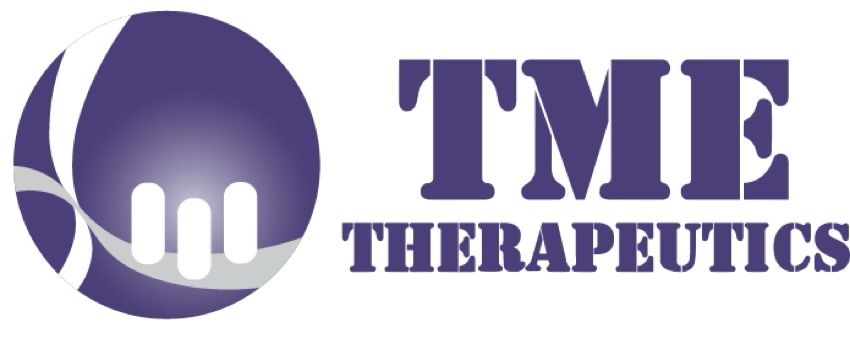Significance of intratumoral route for the stroma-modifying agent, STNM01:
Intratumoral STNM01 expands T cells in the tumor draining lymph node (TDLN), augments tumor-infiltrating T cells with increased gene expression profiles for recognition/killing of cancer cells (see explanation of MOA Movie). Regardless of the number and the location [primary or metastatic] of “visible tumors”, direct injection to 1 (one) primary tumor is effective to induce T cell-mediated anti-tumor activity.
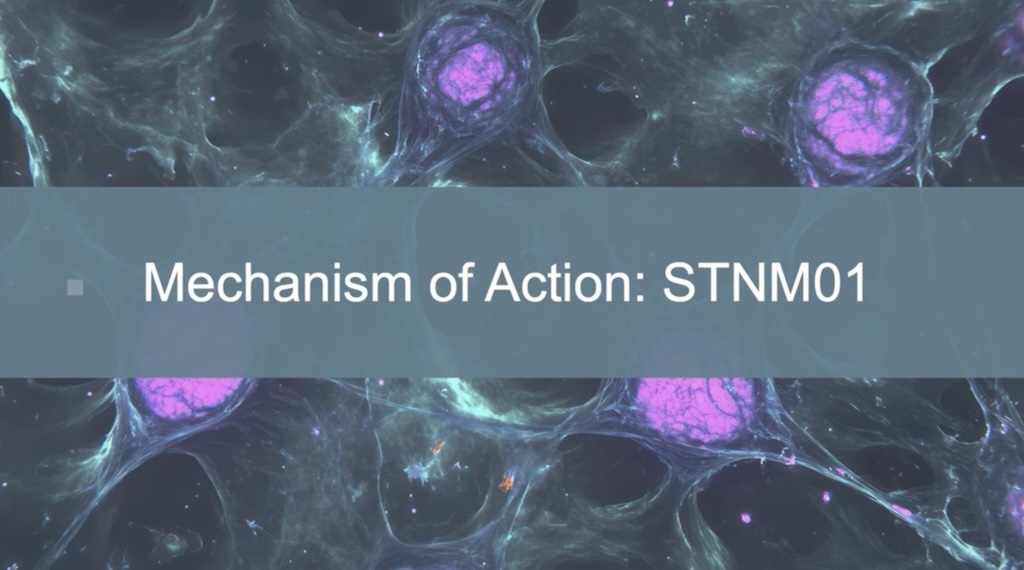
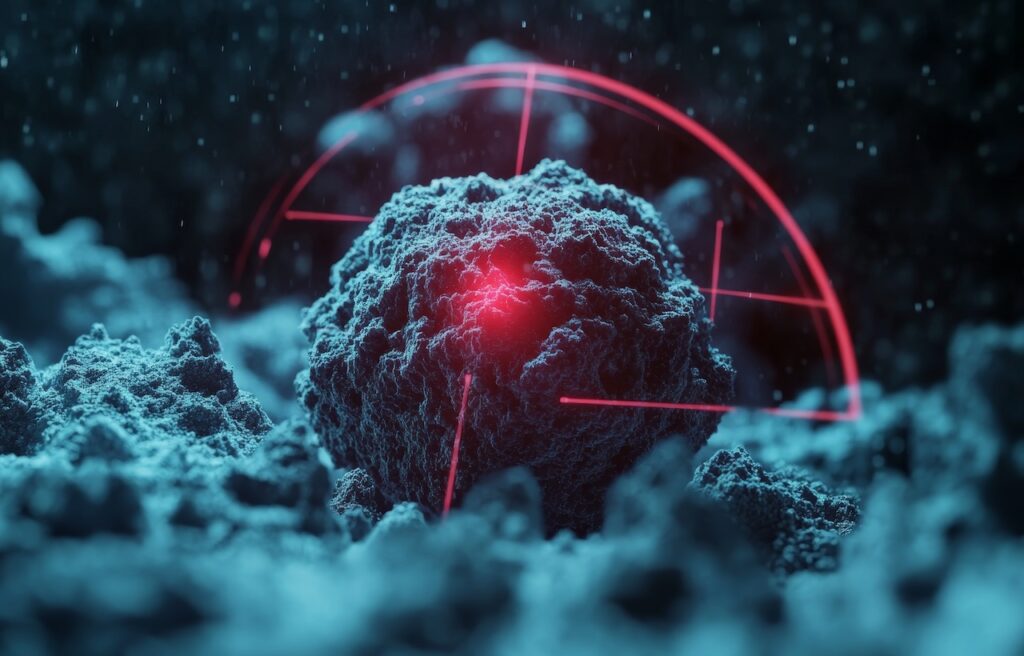
Pancreatic cancer has an extremely poor 5-year survival rate of 8.5%. Although the treatment outcome of unresectable advanced pancreatic cancer has been improved by the establishment of gemcitabine (GEM) or fluorouracil-related regimens as first-line chemotherapy (1 L treatment), most patients are transferred to second-line chemotherapy (2 L treatment) or BSC (best supportive therapy). The median overall survival (OS) of the 2 L treatment is 4.5 months and that of the ONIVYDE regimen is 6.1 months, which is still not satisfactory. “Dense stroma” and “poorly immunogenic” are the causes of resistance to treatment. The effects of vaccination and immune checkpoint inhibitors are extremely poor compared with other carcinomas, and combination therapy with stroma modifying agents is expected to overcome resistance.
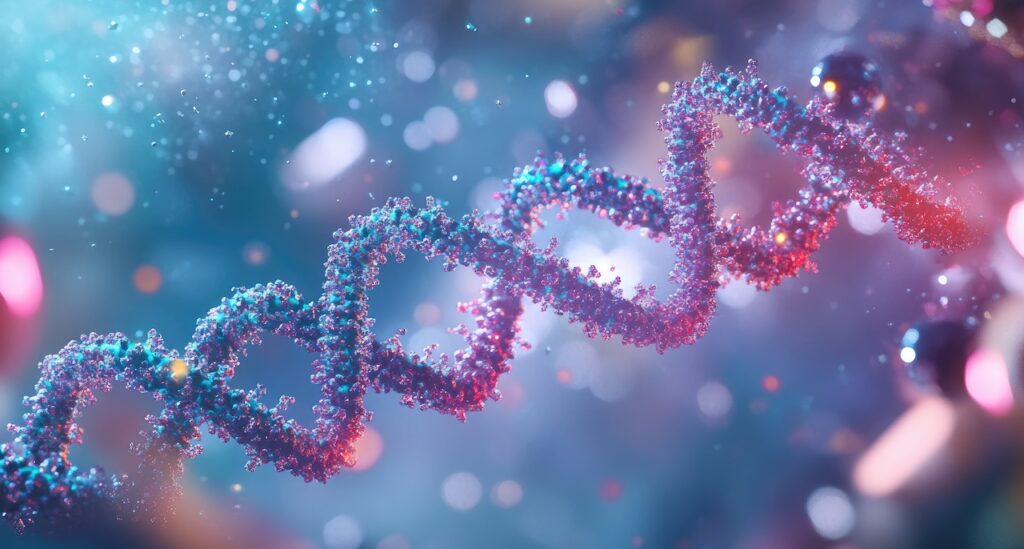
Carbohydrate sulfotransferase 15 (CHST15) is a type II transmembrane Golgi protein that synthesizes chondroitin sulfate E (CS-E), a highly sulfated matrix-type proteoglycan. Experimental knockdown (KD) of pancreatic cancer-derived CHST15 by ribonucleic acid (RNA) interference (RNAi) induces and enhances T cell-dependent anti-tumor effect in both in vitro and in vivo mouse models. STNM01 is a 27 mer double-stranded RNA oligonucleotide that suppresses the expression of the human CHST15 (hCHST15) gene. STNM01 binds to and cleaves CHST15 messenger RNA (mRNA) in pancreatic cancer cells by the RNAi mechanism, thereby inhibiting CHST15 protein expression and CS-E biosynthesis.
In an in vivo study using tumor-bearing mouse models, multiple intratumoral administrations of STNM01 inhibited tumor stromal remodeling (robust fibrosis and NETosis), myeloid-derived suppressor cells (MDSC), while enhanced infiltration of T lymphocytes and showed T lymphocyte-dependent anti-tumor effects. In a phase I/IIa clinical study for unresectable advanced pancreatic cancer refractory to 1 L GEM + nab-paclitaxel (nab-PTX) therapy, intratumoral administration of STNM01 by endoscopic ultrasound-guided fine needle injection (EUS-FNI) in combination with S-1 therapy as 2 L therapy resulted in an increase in tumor-infiltrating T lymphocytes (TIL). The degree of TIL increase was positively correlated with OS.
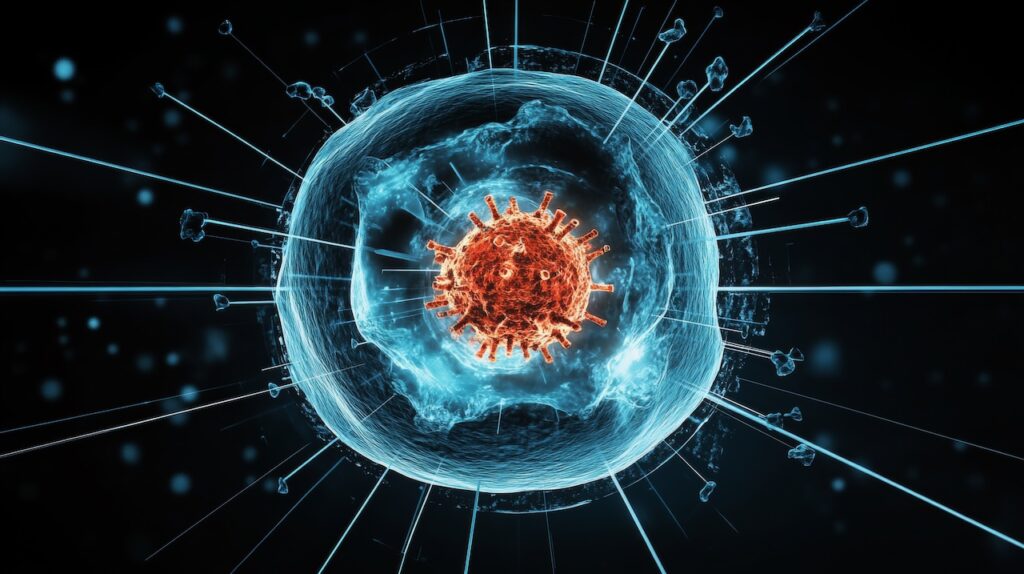
These results suggest that effective suppression of CHST15 gene expression by STNM01 results in decreased production of CHST15 protein and CS-E. STNM01 is expected to be a novel drug for the treatment of unresectable pancreatic cancer with suppressed tumor immunity because it can exert a T-lymphocyte-dependent antitumor effect by suppressing local stromal remodeling lesions of pancreatic cancer.
